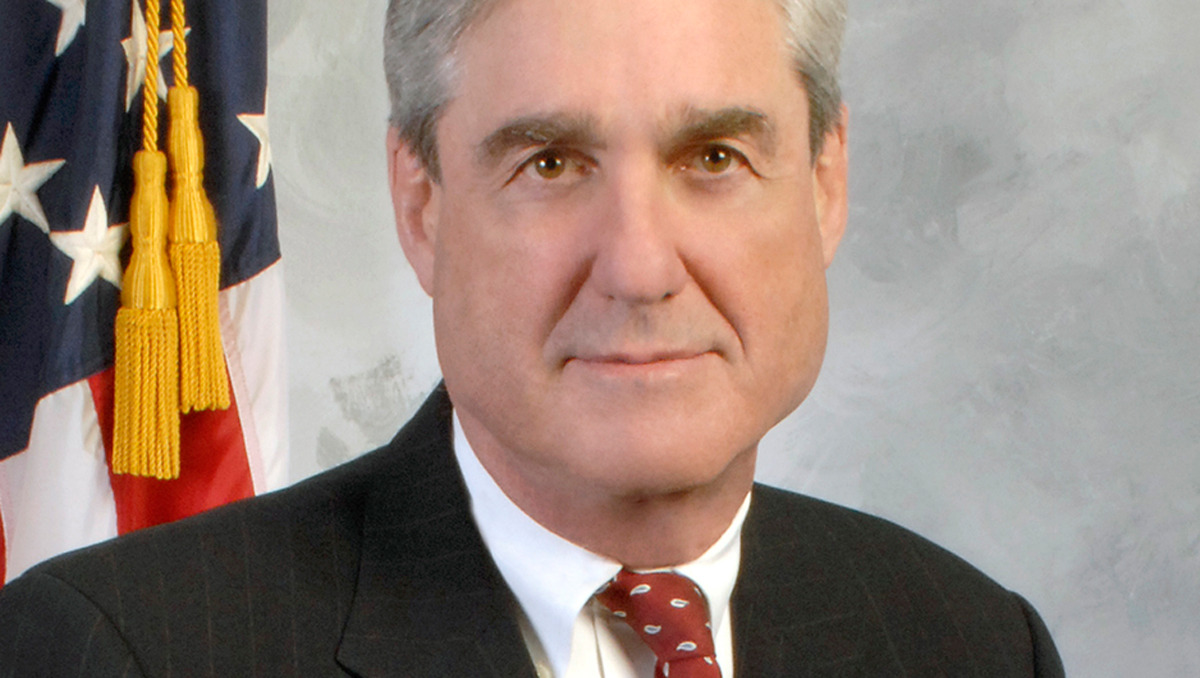On May 18, former FBI Director Robert Mueller was appointed as Special Counsel1 to investigate possible Russian interference in the 2016 presidential election. What precisely does that entail? What powers and authority will Mueller have? Where do they come from? And how much trouble could it mean for the Trump administration? Let’s take a look.
Mueller started his tenure as FBI Director on September 4, 2001, and immediately found himself both redirecting the agency to focus on counterterrorism and defending it against accusations that it failed to prevent the September 11th attacks. His performance was sufficiently well regarded that Congress unanimously extended his 10 year term until 2013, making him the second-longest serving FBI Director after J. Edgar Hoover.
Mueller was appointed to the Special Counsel role by Deputy Attorney General Rod Rosenstein, who is the ranking official on any Justice Department investigations into Russia’s involvement in the election since Attorney General Jeff Sessions recused himself on March 2 due to a failure to disclose key information about his own Russian contacts to Congress during his confirmation hearing. Rosenstein recently came to public attention when President Trump and his administration initially (but fleetingly) characterized Comey’s firing as a response to a memo Rosenstein wrote2 criticizing Comey’s statements regarding the FBI’s Clinton email investigation during the 2016 election. It has been suggested that Rosenstein’s decision to appoint Mueller may have been motivated by the resulting blowback. Regardless of the motivation, Rosenstein gave Mueller broad latitude in the appointment order. Mueller’s formal starting point for investigation are the interactions between Russia and the Trump campaign that Comey discussed before a House committee on March 20. However, the order explicitly notes the authority to investigate “any other matters within the scope of 28 C.F.R. § 600.4(a).”3. 600.4(a) grants:
“…the authority to investigate and prosecute federal crimes committed in the course of, and with intent to interfere with, the Special Counsel’s investigation, such as perjury, obstruction of justice, destruction of evidence, and intimidation of witnesses; and to conduct appeals arising out of the matter being investigated and/or prosecuted.”
In addition, the order cites sections 600.4 through 600.10 as applying to the Special Counsel. Here are the highlights:
- 600.4(b) grants Mueller the ability to request that the Attorney General (or in this case Deputy AG Rosenstein) expand his jurisdiction “to investigate new matters that come to light in the course of his or her investigation.”
- 600.6 provides Mueller with broad independence: “the Special Counsel shall determine whether and to what extent to inform or consult with the Attorney General or others within the Department about the conduct of his or her duties and responsibilities.”
- 600.7 is the primary brake on Mueller’s actions, authorizing Deputy Attorney General Rosenstein to request an explanation of any individual step taken by the Counsel. Rosenstein is also granted sole authority to discipline the Counsel, or remove him for good cause.
- 600.8 requires the Mueller to report to Rosenstein annually, as well as notify him of “events in the course of his or her investigation in conformity with the Departmental guidelines with respect to Urgent Reports.”4
To sum up, Mueller can follow his investigation pretty much anywhere he can convince Rosenstein to approve, and can largely direct it as he sees fit, but he has to report to Rosenstein annually and whenever something “urgent” crops up, and Rosenstein can call him to account regarding specific actions he takes.
A quick trip to Wikipedia shows that while 28 C.F.R. § 600 only dates from 1999, drafted by Janet Reno’s Justice Department to take over from rules in the expiring Ethics in Government Act, Special Counsels have been appointed to investigate presidential administrations many times over the last two centuries, investigating everything from Warren Harding’s Teapot Dome scandal, to Whitewater under Bill Clinton, to the Valerie Plame affair under George W. Bush. Of approximately 30 Special Counsels, over 20 have been appointed just since 19785, and three were eventually fired, most famously Watergate Special Counsel Archibald Cox. As an indication of how long these investigations can last, and how far they can spread, Ken Starr’s investigation into Whitewater began in 1994, was handed off to Robert Ray in 1999, and was officially closed in 2003. This was a nine-year investigation whose only substantive finding was that the President lied under oath three years after the investigation began, about the existence of an extramarital affair which didn’t even begin until the second year of the investigation.
So, with all of this enabled by the CFR, how might the investigation play out? We obviously don’t what Mueller might find, but there are several factors that could affect how his efforts proceed:
- Mueller hits a dead end/paydirt: This is the simplest variable. If Mueller spends a year investigating and only discovers stupidity, bad luck, or individual venality in play, the entire investigation may come to an unceremonious end. On the other hand, any conclusive evidence that even a single member of the Trump campaign attempted to collude with the Russian government to influence the election could keep the investigation chugging along for years to come.
- The investigation expands: While Mueller’s initial investigation is limited to the events of the campaign and their influence on the election, his powers are such that if he finds concrete evidence of other illegality on the part of Trump or members of his administration (e.g. stronger evidence of: efforts of Trump’s extended family to profit from his presidency; violation of controls on classified information; conflicts of interest in setting policy and awarding of government contracts; conspiracy to hide mental or psychological incapacity of the President; etc.), they could be added to Mueller’s jurisdiction. Moreover, the longer the initial investigation lasts, the more likely any unrelated misdeed will get noticed. Again, remember Clinton was impeached over a misdeed that occurred three years after the start of the investigation which eventually reported it.
- The Trump administration tries to undermine the Special Prosecutor role: The CFR is simply the combined results of the formal rulemaking processes of all agencies in the federal government. It would certainly be possible for the administration to order a revision of the regulations governing the Special Prosecutor, possibly as part of a larger rewrite of Justice Department regulations intended to hide the change.
- The Trump administration tries to undermine Mueller in the role: Reuters has already reported that the administration may attempt to challenge Mueller’s investigation based on ethics regulations in the CFR that bar newly hired lawyers from investigating clients of their former employers. This would be a bit of Bizarro-logic, as the rule is motivated by possible bias in favor of the client, and the issue here is that Mueller’s former firm represents Jared Kushner. Based on this tactical choice, the administration will presumably leverage any other regulatory tools it can find to limit Mueller’s reach.
- The Trump administration replaces Mueller’s boss: Since the CFR grants the Attorney General direct authority over Mueller, this is an obvious target. A nice bank shot would be to replace Sessions with somebody without his Russia-related baggage, which would eliminate the recusal which gave Rosenstein the authority to appoint Mueller in the Attorney General’s stead, without targeting Rosenstein himself. This might even be a logical outcome of Mueller’s investigation if Sessions gets dragged far enough into it.
- Congress cuts off funding: While the CFR grants the Special Counsel broad authority in staffing and resources, Congress still controls the purse strings. It would not be unprecedented for them to try to cut off funding for a specific policy or project that they disapprove of, particularly if they can include the funding cutoff in an omnibus bill, or one that is otherwise likely to be passed without a detailed review due to either size or speed.
If there’s any lesson that can be drawn from the history of Special Counsels, it’s that we really have no idea what may come of Mueller’s investigation. It seems hard to believe that nothing damning will come out if the investigation is allowed to run its course, but many assumptions about how our political system functions have gone the way of the dodo recently. The potential longevity of the investigation, the sheer variety of concerns that have emerged in just 4 months of Trump’s administration, and the range of political machinations which may come to bear on Mueller’s appointment and the investigation in general mean that the outcome of Mueller’s efforts is what a statistician might term a “high variance random variable.” We’re just going to have to wait and see, which is a strange thing to say in today’s accelerated political environment.
David is one of the earliest writers for Torchlight, and also pinch hits on website support and editing/posting. He holds a PhD in Economics, which with $5 would get him a latte; sadly, he doesn’t even like coffee. He can be reached at dspitzley@torchlightmedia.net.
Footnotes
- Frequently this role is also called Special Prosecutor
- It subsequently came out Trump requested the memo to justify Comey’s already-planned firing
- CFR is the Code of Federal Regulations (https://www.law.cornell.edu/cfr/text); section 600 deals with the appointment of Special Counsels.
- “Urgent Reports” are defined in the US Attorney’s Manual at https://www.justice.gov/usam/usam-1-13000-urgent-reports; they’re more or less what they sound like.
- The year the previously mentioned Ethics in Government Act was signed into law.


